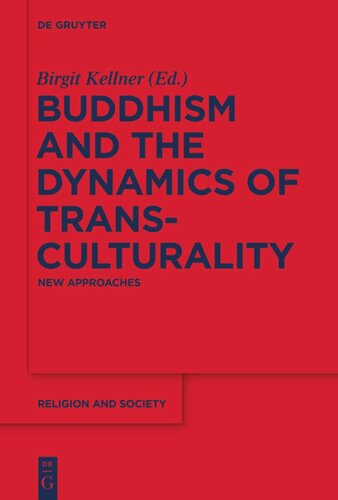

Most ebook files are in PDF format, so you can easily read them using various software such as Foxit Reader or directly on the Google Chrome browser.
Some ebook files are released by publishers in other formats such as .awz, .mobi, .epub, .fb2, etc. You may need to install specific software to read these formats on mobile/PC, such as Calibre.
Please read the tutorial at this link: https://ebookbell.com/faq
We offer FREE conversion to the popular formats you request; however, this may take some time. Therefore, right after payment, please email us, and we will try to provide the service as quickly as possible.
For some exceptional file formats or broken links (if any), please refrain from opening any disputes. Instead, email us first, and we will try to assist within a maximum of 6 hours.
EbookBell Team

4.7
16 reviewsOpen Access
For over 2500 years, Buddhism was implicated in processes of cultural interaction that in turn shaped Buddhist doctrines, practices and institutions. While the cultural plurality of Buddhism has often been remarked upon, the transcultural processes that constitute this plurality, and their long-term effects, have scarcely been studied as a topic in their own right. The contributions to this volume present detailed case studies ranging across different time periods, regions and disciplines, and they address methodological challenges as well as theoretical problems. In addition to casting a spotlight on topics as diverse as the role of trade contacts in the early spread of Buddhism, the hybrid nature of religious practices in Japan or Indo-Tibetan relations in Tibetan polemical literature, the individual papers jointly raise the question as to whether there might be something distinct about how Buddhism steers and influences forms of cultural exchange, and is in turn shaped by modalities of cultural interaction throughout Asian, as well as global, history. The volume is intended to demonstrate the need for investigating transcultural dynamics more closely in the study of Buddhism, and to suggest new avenues for Buddhist Studies.